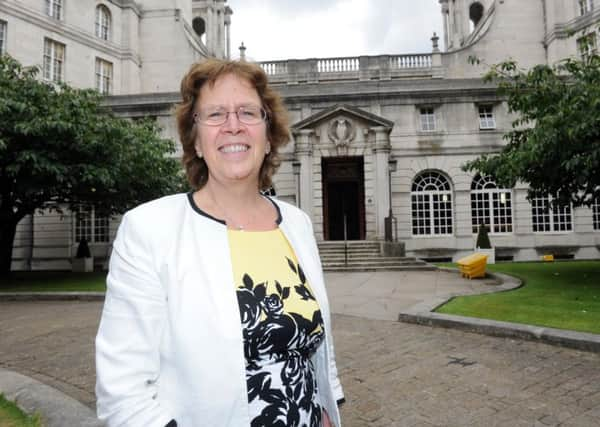Council warns on rising care cost


Leeds City Council leader Coun Judith Blake described the move as a “step in the right direction” but not enough to relieve all of the financial pressures on her authority from the rising demand from adult social care.
Councils have been told they can add an additional two per cent to council tax bills if the money raised is ring-fenced to be spent on adult social care.
Advertisement
Hide AdAdvertisement
Hide AdThe power was confirmed in the Government’s financial settlement for councils announced last week.
Town halls are still poring over the detail but authorities including Leeds and North Yorkshire have already warned their cuts in Government funding for the year ahead are bigger than expected.
Leeds has confirmed it will have to revisit its budget plans after its Government grant was cut by £34m rather than the expected £24m.
The authority’s draft budget already contained a raft of savings including a reduction of 259 staff.
Advertisement
Hide AdAdvertisement
Hide AdCoun Blake said: “Clearly one of the issues that we will be looking at in a great deal of detail is the whole area of social care.
“Whilst this will give us some more money, around £5m in the Leeds context, we are working against pressures of around £20m just to stand still.
“So whilst it is a step in the right direction actually in terms of what we need to find to address the increasing pressures, more vulnerable elderly people who need our care, it doesn’t go anywhere near enough.”
Coun Blake was responding to questions from Leeds councillors over the city’s finances for next year.
Advertisement
Hide AdAdvertisement
Hide AdThe Government has announced its intention to remove council grants by 2020 with local authorities expected to fund themselves through new powers to hold onto all business rates income along with council tax and charges for services.
Northern urban councils have historically been more dependent on Government grants because of higher poverty levels and lower levels of economic activity.
Coun Blake told councillors the move would leave the authority “deeply vulnerable” if the economy goes into recession.
“We still don’t know how they are going to deal with the equalisation across areas that don’t have a chance of achieving the level of business rate that more wealthy areas will.
Advertisement
Hide AdAdvertisement
Hide Ad“If Westminster, for example, could hold onto all its business rates they would be wealthiest area of the country and that is patently unfair,” she said.
Leeds City Council’s deputy chief executive Alan Gay told councillors the authority that while it would be able to retain business rates income it would have limited powers over how they are set.
He said: “Prior to 1990 local authorities had complete control of business rates and we had to manage economic ups and downs but in those days councils set the rate in the pound.
“Now we only be able to reduce the rates charged not increased other than if there is an elected mayor through devolution.”
Advertisement
Hide AdAdvertisement
Hide AdMr Gay also pointed out that business rates income depended on successful firms having large premises and this was no longer always the case.
According to council figures, Leeds has lost more than £180m in funding since 2010.
It is expected to raise council tax bills by four per cent in April although a final decision has yet to be taken.